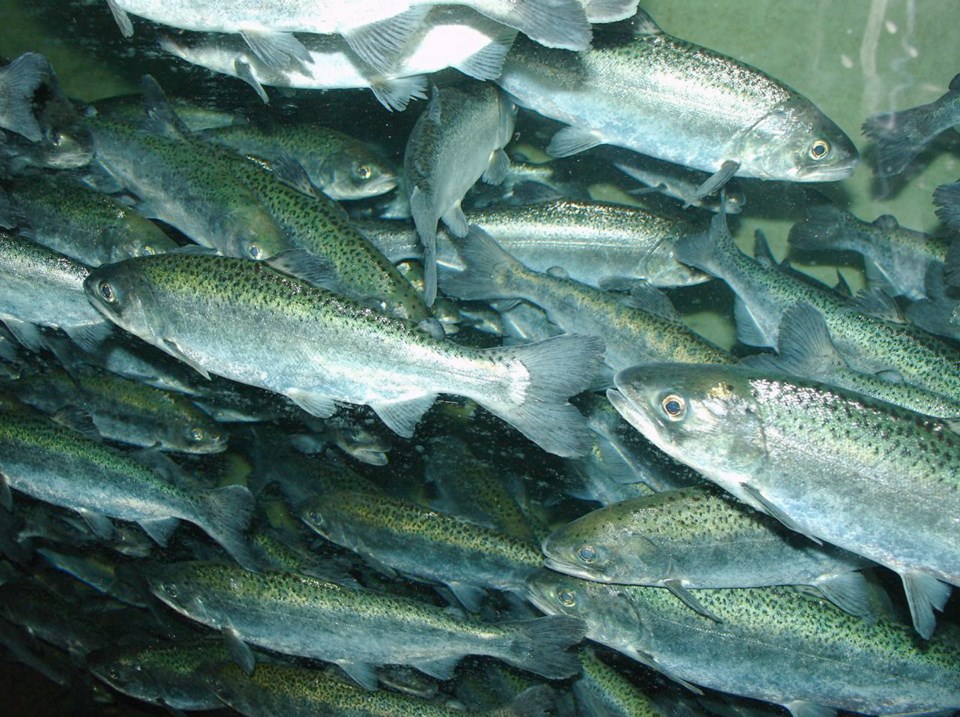Former federal fisheries minister David Anderson expects that “substantial restrictions” in catch will be needed to save chinook salmon along the West Coast.
“Restricting catch is about the only real mechanism we have,” said Anderson, who in the late 1990s imposed a zero- mortality policy for coho salmon.
“It’s unfortunate that is the only real tool we have, but that’s a fact of life.”
The coho experience showed that stock recovery can be quite swift, Anderson said.
“We did very well, very quickly,” he said. “You need four years because that is the cycle.”
Canada’s current fisheries minister, Jonathan Wilkinson, is expected to announce strict catch limitations as research indicates chinook stocks are in trouble. Wilkinson is speaking today at a Greater Victoria Chamber of Commerce luncheon.
Wilkinson is coming up against B.C.’s sport-fishing sector, backed by the Island’s chambers of commerce, fighting for some sort of compromise that will protect salmon and still allow some to be caught.
Chinook are economically valuable to coastal communities where a range of businesses serve the sport-fishing sector, involving both local residents and tourists.
Chinook are beloved by anglers because they are the largest of all B.C. salmon and are an exciting, fighting fish to catch.
Chinook are also the favoured food of the endangered southern resident killer whales.
Fishing cutbacks, supported by conservationists, to feed orcas were imposed last year and now the federal government is looking at the upcoming chinook season.
“I say this with regret, but I think we are going to have to have very substantial restrictions on catch. It’s one thing you’ve got that you can control,” said Anderson, who was fisheries minister from 1997 to 1999. He subsequently served as environment minister from 1999 to 2004.
Changing natural conditions are another factor, Anderson said. “With climate change, it may be that we are fighting a very difficult uphill and potentially impossible battle. I don’t know. Climate change is making such a difference.”
A 2018 report by the Department of Fisheries and Oceans spelled out the situation: “Large-scale patterns of environmental change and increased environmental variability have been associated with broad declines in productivity of chinook salmon across their range in recent decades.”
The bulk of chinook salmon populations returning to B.C. waters face grim prospects. The Committee on the Status of Endangered Wildlife in Canada determined that 12 Fraser River-bound chinook populations are either endangered, threatened or of special concern. Another group heading to the Nanaimo River is also endangered.
That committee is expected to include these assessments in its annual report to the federal government this fall. That report starts a process to determine if those populations will be listed under our Species at Risk Act. Anderson spearheaded the Species at Risk Act when he had the environment portfolio.
If a species is categorized as endangered under the act, “then the government is required to put together a recovery plan and that is where we get into issues affecting the fishing interest,” Anderson said. Being listed as a species at risk is “not automatic, but it is pretty close to it when COSEWIC puts up its recommendation.”
The biological cycle is paramount and economic interests have to come second, he said.
Many chinook caught off the west coast of Vancouver Island are fish from Puget Sound rivers, he said, noting that Canada has to co-operate with the U.S.



